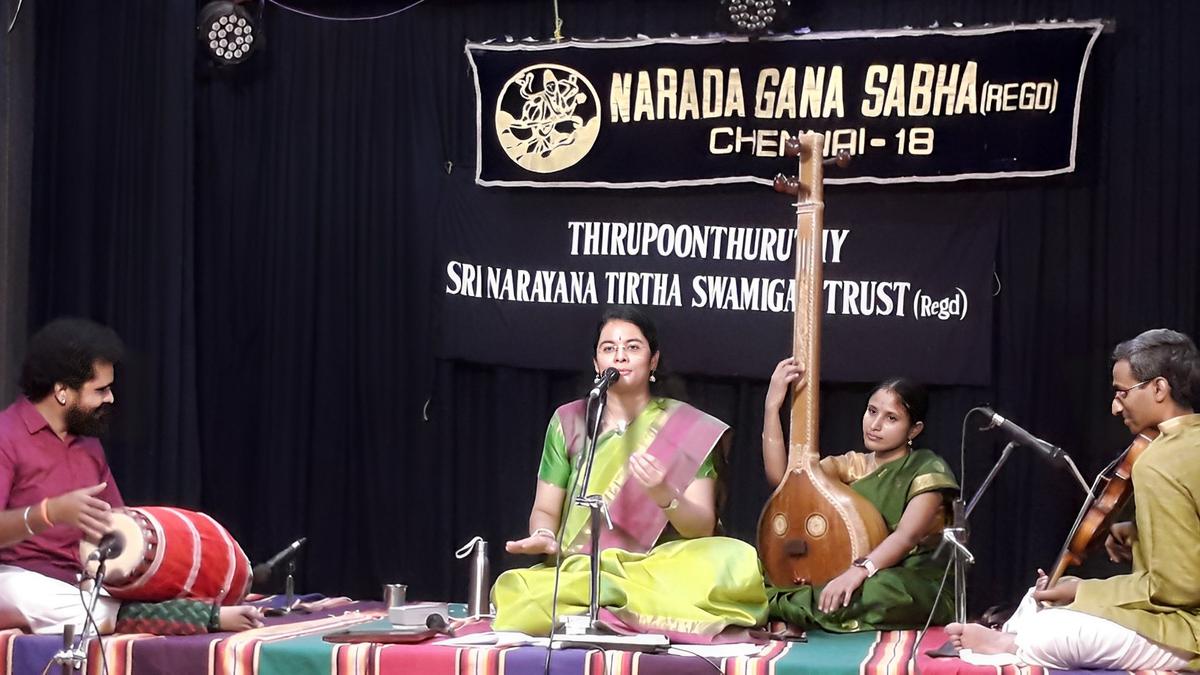
Carnatic vocalist Amrutha Venkatesh brings forth the emotions in Sri Krishna Leela Tarangini geethams
The Hindu
Amrutha Venkatesh impresses with her rendition of geethams
On the occasion of the 348th jayanthi of Narayana Tirtha, Thirupoonthuruthy Sri Narayana Tirtha Swamigal Trust organised two tarangam performances — Bhavadharini Anantaraman and her disciples, who presented the first sargam (chapter) of the opera in namasankeertanam style and Amrutha Venkatesh, who rendered songs from Sri Krishna Leela Tarangini.
The concert, held recently at Narada Gana Sabha, drew a near full-house audience and showcased various geethams with Amrutha providing insightful information about the essence of each verse.
She began her performance with ‘Jaya jaya ramanaatha’ in the raga Natai, set to Khanda Chapu tala. The song was preceded by a sloka, which gave a wonderful start to the concert. The medium-paced kalpanaswaras added further depth to the rendition.
Next came the seventh geetham in the third tarangam, ‘Parama karunaya,’ set to Ragamalika. Interestingly, both the sloka and the geetham shared the same theme and similar verses. Amrutha and her accompanying artistes showcased their finesse when exploring different ragas.
A geetham from the second tarangam, ‘Ehi mudam dehi’ in Khamas, followed. The swift tempo perfectly matched the mood of the song that talks about how the gopikas enjoy baby Krishna’s pranks.
For an elaborate rendition, Amrutha chose ‘Bhaavaye sakhi’ from the eighth tarangam, setting it to raga Vasantha. Her lively presentation brought out the essence of the verses, which describe the gopikas’ joy in seeing Krishna’s Vishwarupa Darshanam. Accompanied by L. Ramakrishnan on the violin, who reflected Amrutha’s emotion in every phrase, the fast-paced kalpanaswaras were energetically supported by Arjun Ganesh on the mridangam.
In the Mukhari raga alapana, Amrutha and Ramakrishnan exhibited their individual skills by exploring the nuances of the raga with long, sustaining phrases and vibrant short ones. The rendition of ‘Krishnam kalaya sakhi,’ a popular tarangam that describes the qualities of Krishna, tuned by maestro M. Balamuralikrishna, was imposing.











